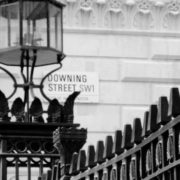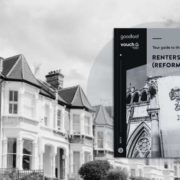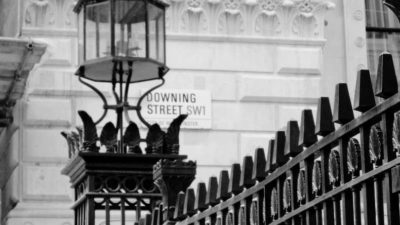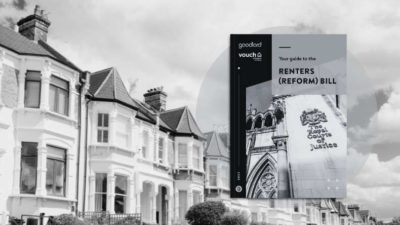Local and central governments are losing out on millions of pounds of council tax income because the Government’s business rates system is still giving many holiday home and second homeowners the opportunity to avoid paying the tax, provided they make their properties available to rent and do so for just 10 weeks of the year.
Colliers estimate the total loss to government due to the system of business rates relief for holiday lets in England and Wales alone is now around £170 million a year (2023/2024) – a significant sum that could certainly help bridge the gap in local government finances.
Property owners who make their properties available to rent as holiday lets for 140 days of the year can claim they are a small business and as such can elect to pay business rates instead of council tax.
However as small businesses they can claim for relief on 100% of the business rates payable if their properties have a rateable value of less than £12,000.
Those properties with a rateable value between £12,000 and £15,000 are also entitled to a relief on a sliding scale in line with the Government’s business rates relief policy.
Colliers has analysed the rating list for the Southwest of England (Cornwall, Devon, Dorset and Somerset ) where 13,085 new properties, claiming 100% business rates relief have entered the list in the last six years – more than double the number claiming at the start of the 2017 Rating List.
The South West now has 23,817 self-catering holiday let properties in the rating list that are eligible for 100% business rates relief and so don’t pay the tax.
Colliers has estimated that if these properties at least paid council tax, the local councils would benefit by over £53 million of income.
The issue is most acute in Cornwall where 12,065 holiday let properties do not pay either business rates or council tax, due virtue of being holiday lets and classified as non domestic.
Colliers estimate that if these properties paid council tax, over £27 million of extra income would be raised every year in Cornwall alone. (Based on average Council Tax payable in Cornwall of £2221 a year (Band D))
The Government has taken some steps to close abuse of this loophole.
Since April 2023 a property can only qualify to be in the business rates list if it is made available for rent for 140 days a year and let out for short periods totalling at least 70 days.
However, as John Webber, Head of Business Rates at Colliers points out, “These measures are not strong enough to deter businesses “flipping” into the business rates list and thus reducing the local authority’s ability to collect funds.
A second homeowner can still let out their property for only 10 weeks of the year and would be able to avoid paying any business rates or council tax.
The fact that the number of properties entering the business rates lists is still growing, is a testament that the deterrent is not working.”
Meanwhile there has been a boom in house prices in recent years, particularly the South West, which has been highly impacted by second homeowners.
House prices in Cornwall alone have risen over 63% in the last five years. (The latest figures reveal that the current average price for residential properties in Cornwall sits at around £366,000 – compared to around £225,000 in 2018.)
Looking at England and Wales as a whole, the picture is even more startling.
According to Colliers there are now over 85,044 holiday let properties in the business rates lists in England and Wales that are eligible for 100% business rates relief, and as such do not pay business rates or council tax.
Colliers estimate this is reducing income to local authorities of around £170 million a year.
Webber continued, “Despite posturing little has been done by the government in the last five years to properly reform the business rates system.
This is especially extraordinary given the pressure on local authority finances, and the subsequent need for central government to fill any gaps.
The local tax burden remains weighed onto residents or other types of businesses that are struggling to pay their council tax bills, which have again risen substantially in this last year.
Meanwhile agents selling properties in popular domestic holiday areas positively advertise the rates savings advantages, which has probably contributed to the further rise in house prices.”
Webber continued, “Cornwall Council by increasing council tax by the maximum allowable this year while at the same time cutting services, are simply missing the point if they believe ‘quadrupling’ council tax on second homes is the answer.
Doing that will only force even more people to flip from council tax to business rates. I am not sure it takes a genius to work that one out.
While Local Authorities may be compensated by Central Government in some respects for these losses, the point is less money will be collected locally which will mean less to spend on services- unless of course the magic money tree is being shaken by the cash fairies in Whitehall.
While politicians bicker about the lack of social housing in places like Cornwall and portray people buying second homes as the villains, if they charged holiday let owners at least the same as a council taxpayer they would have received over £100 million to build affordable housing in Cornwall alone.
The problem is not second homeowners, it is politicians failing to understand the issues and having the courage to do something about it.
The fact that this trend of flipping from the council tax to the business rates list is growing every year is also a real cause of concern.
Two years ago, we estimated the loss of income to government was £110 million, last year it was £150 million and this year it will be £170 million.
Such loss of council tax every year will soon mount up over the years, with the government increasingly needing to bail out local authorities.
The government really needs to reform the whole system and do it thoroughly.”
Colliers does not blame the homeowners that take advantage of this tax break through making their properties available to let- this could be considered sensible tax planning.
However, Colliers do blame the government for over-seeing this mess which inevitably leads to friction in many coastal resorts.
Most second homeowners would accept the need to pay the minimum of council tax and neither need nor expect this windfall at a time when public services are under enormous pressure.





















Comments